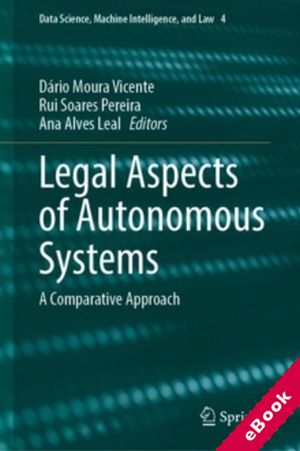
The device(s) you use to access the eBook content must be authorized with an Adobe ID before you download the product otherwise it will fail to register correctly.
For further information see https://www.wildy.com/ebook-formats
Once the order is confirmed an automated e-mail will be sent to you to allow you to download the eBook.
All eBooks are supplied firm sale and cannot be returned. If you believe there is a fault with your eBook then contact us on ebooks@wildy.com and we will help in resolving the issue. This does not affect your statutory rights.
As computational power, the volume of available data, IT systems’ autonomy, and the human-like capabilities of machines increase, robots and AI systems have substantial and growing implications for the law and raise a host of challenges to current legal doctrines. The main question to be answered is whether the foundations and general principles of private law and criminal law offer a functional and adaptive legal framework for the “autonomous systems” phenomena.
The main purpose of this book is to identify and explore possible trajectories for the development of civil and criminal liability; for our understanding of the attribution link to autonomous systems; and, in particular, for the punishment of unlawful conduct in connection with their operation. AI decision-making processes – including judicial sentencing – also warrant close attention in this regard.
Since AI is moving faster than the process of regulatory recalibration, this book provides valuable insights on its redesign and on the harmonization, at the European level, of the current regulatory frameworks, in order to keep pace with technological changes.
Providing a broader and more comprehensive picture of the legal challenges posed by autonomous systems, this book covers a wide range of topics, including the regulation of autonomous vehicles, data protection and governance, personality rights, intellectual property, corporate governance, and contract conclusion and termination issues arising from automated decisions, blockchain technology and AI applications, particularly in the banking and finance sectors.
The authors are legal experts from around the world with extensive academic and/or practical experience in these areas.